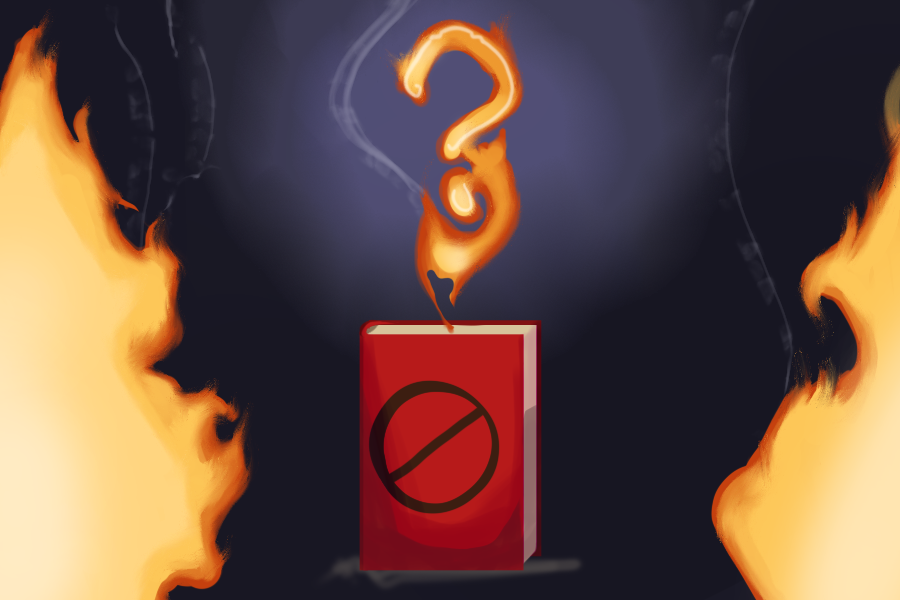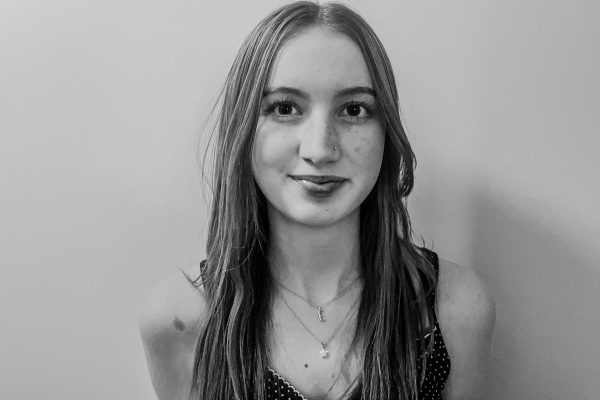STAFF EDITORIAL: Book Banning Is Bad for Education
Several Iowa bills have been passed in recent months banning books with explicit sexual content, racial themes, and LGBTQ+ characters.
May 19, 2023
Two bomb threats at Northwest Junior High School on March 23rd and 24th accompanied the demand for the removal of a book called This Book is Gay from the school’s library. This heinous menace of violence and death to students and educators has brought debates about book banning to the forefront of the Iowa City Community School District (ICCSD).
Several Iowa bills have been passed in recent months banning books with explicit sexual content, racial themes, and LGBTQ+ characters. These bills come among at a turning point in education and politics in the state: last year the Iowa legislature banned critical race theory (which contextualizes modern-day racial inequality, and holds that non-white people are at a disadvantage in western society due to their race) and more recently, Governor Reynolds passed a bill that requires transgender students to use the bathrooms that accord with the gender that was assigned to them at birth. These bills, which are backed almost exclusively by conservative politicians, serve as a potent example of the increasing political polarization in the State of Iowa.
Book banning has a long history in the United States and around the world. It is typically associated with tyrannical dictatorships, ranging from Victorian Era sexual prudishness to Nazi Germany’s flagrant book burnings. But the 1st Amendment of the U.S. Constitution also protects free speech and expression. This is why the recent book bans in the state of Iowa are particularly disturbing. The fact that the current Iowa Legislature allows and encourages the censorship of literature in schools is frankly shocking.
A new bill passed last month will make it possible for anyone, in any part of Iowa, to challenge a book which will then be removed everywhere in the state. Any teacher or librarian who recommends a banned book to a student will be fined $25,000 per instance. Some teachers feel that the bill severely limits the pool of available literature. Books that have already been banned in Iowa include: The Absolutely True Diary of a Part-Time Indian by Sherman Alexie, Me and Earl and the Dying Girl by Jesse Andrews, and Gender Queer: A Memoir by Maia Kobabe.
The recent book bans will have many harmful effects on the community. Students who belong to minority groups will have a more difficult time finding books with characters and themes that mirror their personal experiences. Books should portray the reality of a school, not a whitewashed version of it. 48% of City High’s student population belongs to a racial minority group, and the same is true of the rest of the ICCSD. Perhaps more importantly, students benefit immensely from reading books about people who do not look or think like them. This helps create empathy and tolerance, and fosters a strong community of mutual acceptance. Books challenge readers by taking them out of their day-to-day lives to consider what it would be like to be someone else.
Censorship in any form is severely damaging to the community in which it takes place. Complete regulation of information is nearly impossible in the era of widely accessible internet and social media. But books, unlike the internet–whose algorithms direct consumers to topics and opinions with which they are already familiar–are not echo chambers. Books–especially books that discuss complex and real-world material–prevent their readers from becoming ignorant and complacent in a world in which ignorance and complacency have been proven to be very dangerous. The reason students learn history is so that they can try to avoid mistakes that people made in the past. Books provide knowledge that is similar to history but through a multitude of different lenses. There is a common saying in education that “Knowledge is Power.” Knowledge is more than power; it changes the way we see the world, informs every decision we make, and increases the significance of our existence.
While some advocates of the bill claim that it will help to protect children and teenagers from supposedly harmful information, opponents say that it will prevent them from learning about other ways of thinking. If students are not exposed to other ways of thinking in a safe school environment, what will they do when they inevitably encounter those ideas in college and in the complex world outside of school?


































